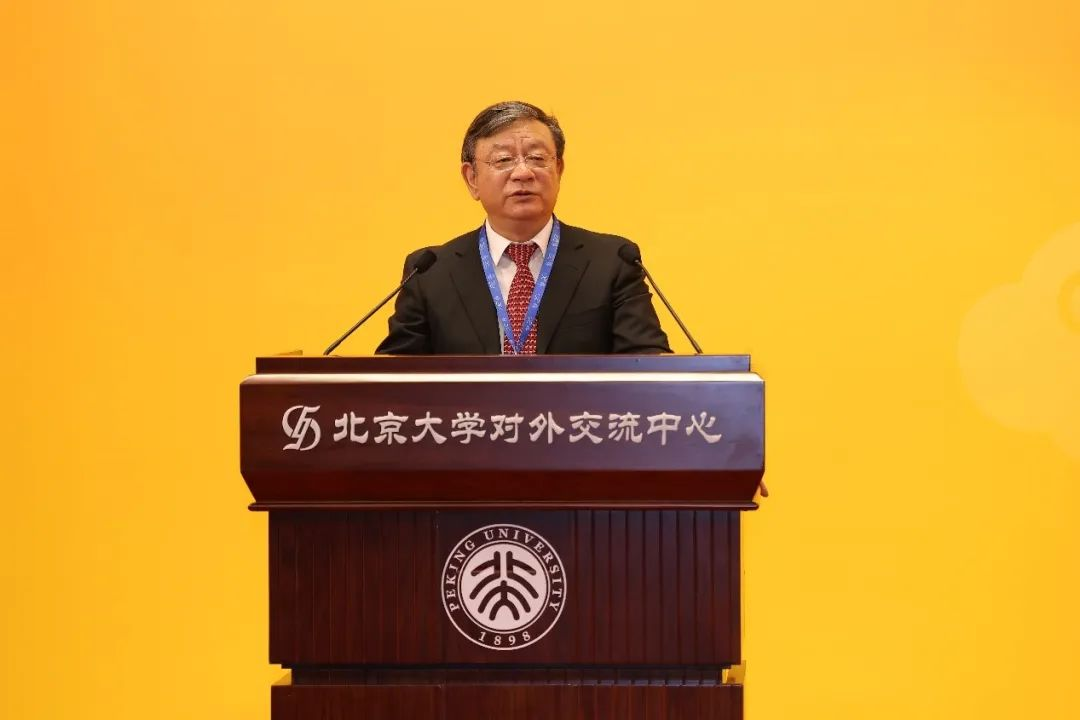Tang Shiqi’s Speech at the International Relations Panel of the 2023 Beijing Forum
Nov 09, 2023
Good afternoon, everyone!
This year marks the 20th anniversary of the Beijing Forum’s establishment as well as the first forum held since the three years of the pandemic, both of which are of great commemorative significance. As the longest-lasting, largest, and most influential international forum hosted by Peking University, the Beijing Forum highlights the theme of “harmony of civilizations and prosperity for all.” This year, the School of International Studies has the privilege to continue hosting the International Relations Panel.
The theme of this panel is “International Cooperation and Global Governance in the Era of Uncertainty,” stemming from concerns about profound adjustments and changes in international relations. Looking around the world today, the haze of the pandemic has not yet completely dissipated, the game between the world’s major powers has suddenly intensified, regional conflicts have sprung up repeatedly, non-traditional security threats have emerged in an endless stream, and uncertainty in international relations has notably increased. Deficits in governance, trust, peace, and development have become serious challenges humanity is facing.
Human civilization seems to have fallen into a kind of paradox. The starting point and symbol of civilization’s progress can be said to begin with the constant creation of new systems and technologies to reduce or eliminate the uncertainties of people and nature and to increase social order and natural controllability. But overall, the human social order, human intervention, and control over nature have not fundamentally reduced the uncertainty we face. In fact, we are actually in a world of unprecedented uncertainty, risks, and crises, and anxiety, uneasiness, and fear are becoming the new norm.
These facts clearly indicate that continuous improvement of the human organizational system and rapid technological development can provide important conditions for creating various orders, but also may become destructive forces that demolish all order and even human civilization. On the one hand, people realize the increase in uncertainty is largely due to mutual suspicion, prevention, and opposition between people; on the other hand, people also realize that constantly escalating the conquest, control, and exploitation of nature will not lead to nature’s obedience and domestication. Therefore, humans need to conduct a deep reflection on our inter-human relationships as well as those between humans and nature. As international relations researchers, we pay more attention to the former aspect of inter-human relationships embodied via countries. But in reality, only after a fundamental change in human relationships occurs, can we establish a new type of relationship between humans and nature.
To fundamentally adjust the relationship between people and countries, I believe there is nothing more important than these two concepts and mechanisms. Regarding the former, it is necessary to continuously strengthen mutual trust and understanding between people and countries thereby deepening the sense of community, and even to elevate these values to the importance of a common human obligation. Regarding the latter, we must strengthen and innovate communication, negotiation, and mediation channels between two countries as well as between countries and non-sovereign entities. Fundamentally speaking, the key to resolving the predicament of global governance and reducing the various risks and uncertainties faced by humanity lies in whether or not we can place the common security of humanity as the starting point of all human activities, transcending nationalism and unilateralism. It also depends on whether we can strengthen dialogues and communication among civilizations, seek common ground while shelving differences, and advocate mutual interest and mutual understanding, in a bid to build an inclusive and reciprocal global governance mechanism.
The Peking University School of International Studies has always regarded “a global view and a Chinese sentiment” as the School’s founding tenet and considers international issues from a long-term strategic perspective. This May, the School of International Studies established the Peking University Global Risk Political Analysis Laboratory, devoted to integrating multidisciplinary perspectives and interdisciplinary methods, promoting collaborative and cutting-edge research on global risks, and seeking creative quantitative global governance solutions. The establishment of this laboratory is a new attempt and exploration in scientific research work by the School of International Relations, and an important component of disciplines like international relations, national security, and international public policy. Moreover, it is an open and innovative platform for domestic and foreign experts to participate in the future of serving the safety and well-being of the country, society, and individuals in this highly uncertain era.
Additionally, it should be noted that at this sub-forum, we have specifically invited a group of young scholars from the school. I would like to ask my colleagues in the academic field to support them because the future belongs to the young.
Finally, I wish this panel the most success and I wish all the guests good health and all the best! Thank you everyone!
Tang Shiqi is the Dean of the School of International Studies at Peking University.
This is an abridged version of the speech; the full transcript can be viewed here.
Translated by: Caitlin K. Tierney
Edited by: Dennis Meng
